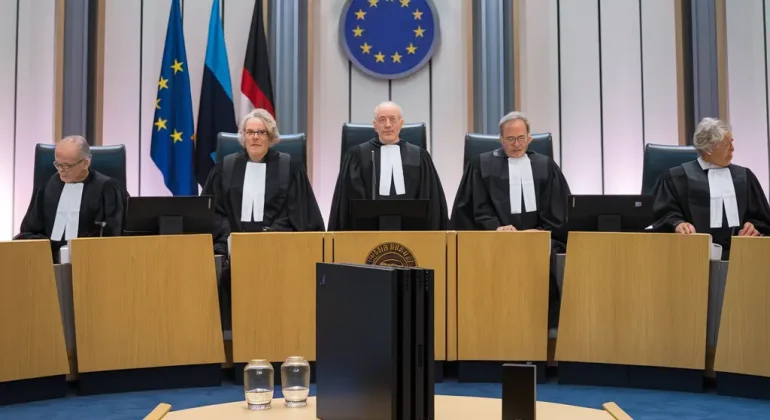On October 17, 2024, the Court of Justice of the European Union (CJEU) delivered a pivotal judgment in the case of Sony Computer Entertainment Europe Ltd v. Datel Design and Development Ltd (Case C-159/23). This decision addresses the extent of copyright protection for computer programs under Directive 2009/24/EC, particularly concerning software that modifies variable data during program execution without altering the program’s source or object code.
Sommaire
Background of the case
Sony, a leading developer and distributor of PlayStation consoles and associated video games, initiated legal proceedings against Datel, a company specializing in software and devices that interact with gaming consoles. It identified that Datel was marketing products such as the “Action Replay PSP” software and the “TiltFX” device. These products allowed users to alter gameplay by unlocking features or modifying controls, achieved by running concurrently with Sony’s games and altering variable data in the console’s random access memory (RAM) during execution. Sony contended that such modifications infringed upon its exclusive rights to authorize alterations of its computer programs, as protected under Directive 2009/24/EC on the legal protection of computer programs.
Legal questions referred to the CJEU: Analysis and judgment
The Bundesgerichtshof (Federal Court of Justice, Germany) referred two primary questions to the CJEU:
- Scope of Protection: Does the modification of variables transferred to a computer’s RAM by a protected program, without altering its source or object code, fall within the protection afforded under Article 1(1) to (3) of Directive 2009/24/EC?
- Definition of Alteration: Does such modification constitute an “alteration” under Article 4(1)(b) of the Directive, which grants the copyright holder exclusive rights to authorize or prohibit any alteration of their computer program?
In its deliberation, the CJEU focused on the interpretation of “forms of expression” of a computer program as protected under Article 1 of Directive 2009/24/EC. The Court emphasized that protection extends to the program’s source code and object code, as these are the expressions that enable the reproduction or subsequent creation of the program. Conversely, elements such as functionalities, programming languages, and data file formats do not constitute protected forms of expression.
The Court concluded that the content of variable data inserted by a program into a computer’s RAM during execution does not fall within the protection conferred by the Directive, provided that such content does not enable the reproduction or subsequent creation of the program. Consequently, modifying these variables without altering the source or object code does not constitute an infringement of the copyright holder’s exclusive rights under Article 4(1)(b).
Implications of the decision
This judgment delineates the boundaries of copyright protection for computer programs within the EU, clarifying that:
- Variable Data vs. Source Code: Alterations to variable data during program execution, which do not impact the source or object code, are outside the scope of protection under Directive 2009/24/EC.
- Functional Modifications: Software that interacts with existing programs by modifying runtime variables, without altering the program’s code, does not infringe upon the exclusive rights of the original program’s copyright holder.
This decision has significant ramifications for developers of ancillary software, such as game enhancement tools or customization applications, affirming that certain modifications at the execution level are permissible under EU copyright law.
Conclusion
The CJEU’s ruling in Case C-159/23 provides critical guidance on the interpretation of copyright protection for computer programs, particularly concerning the distinction between protected forms of expression and permissible modifications during program execution. This clarification is essential for both software developers and rights holders in understanding the legal parameters of program modification and the scope of intellectual property rights within the European Union.
At the Dreyfus firm, we bring expertise across all areas of intellectual property, including copyright law, to provide you with the highest level of guidance and protection for your rights and innovations.
The Dreyfus firm collaborates with a global network of intellectual property specialists.
Follow us on social media!

